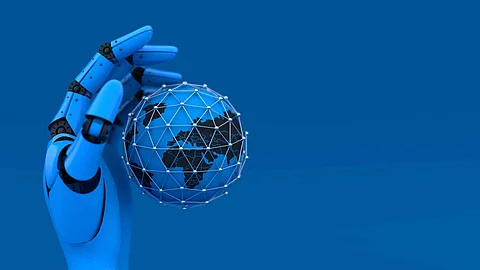
- Insights
- Cryptocurrencies
- Stocks
- White Papers
- Industry
- Geography


Today, Artificial Intelligence is fundamentally transforming business by allowing organizations to deliver faster, better, more profound, and unforeseen insights. These streamline and automate processes that lead operational efficiencies and provide the speed and accuracy of insights to transform decision making and drive the outcomes, revenues. It also enhances customer experiences that deliver strong business growth.
If you're about to begin your endeavors to artificial intelligence, information technology company such as Dell EMC is an ideal partner. It delivers expertise along with a broad, innovative portfolio of technologies to provide the data-driven solutions that accelerate successful AI implementations. Many organizations are now using the insights from data, and the power of Dell EMC AI products and solutions to distinguish themselves from the competition.
You hear terms like artificial intelligence, deep learning, and machine learning all the time, but what do they mean for businesses and more precisely for IT?
AI technologies have entered the mainstream, allowing businesses with the foresight to install them to gain valuable real-world benefits right now. Benefits include business growth and advantages, such as:
• Gaining greater value from IT investments
• Improving relationships with customers
• Terminating countless hours of repetitive and mundane management tasks
• Ensuring that millions of day-to-day transactions are completed with speed and accuracy
The fact is that many of the world's most innovative established enterprises are doing well on their way with AI and its technologies adding immediate and long-term benefits from infrastructure management to product innovation.
The first step towards AI journey begins with figuring out where we are now, why the age of AI has started and why this is the perfect time for companies (small and large) to take a step forward becoming an AI-powered operation. Three leading technology advances converge to make AI scale more viable, accessible, and imperative today.
The advances are listed below:
The never-ending march of Moore's law, providing compute at large scale distributed around data centers, clouds, connected devices, and embedded intelligence.
The urgency of the Internet of Things (IoT), cloud-native apps, and new data storage methods, which combine, generate, store and protect massive amounts of data with more recent data from all that compute rapidly adding to historical data.
The maturation of more specific algorithms can make sense of data and reveal powerful and actionable insights that bring next-generation experiences, enhanced business process across all industries, and optimized infrastructure continuously.
AI is nothing without data. Data is the fuel for modern tech-era. The deeper, massive, and more complex our data stores and streams turn into, the more vital the role of AI becomes. Applying data, AI is aiding organizations to accelerate results, drive business growth, and make smarter, more accurate decisions around an endless number of industries and use cases.
The leading force behind AI is its power to boost human progress from day-to-day to the life-changing. AI has broad applicability, spanning public and private sectors, and all kind of markets including industrial, medical, education, and finance.
Bionic Vision: The computer vision team at Commonwealth Science and Industrial Research Organization has developed software for a bionic vision solution designed to revive sight for humans with profound vision loss. This life-altering advance uses large-scale image datasets to learn to detect more types of images.
Improved credit card fraud protection: MasterCard uses machine learning algorithms to test 160 million transactions each hour by applying 1.9 million rules on every transaction in a matter of milliseconds.
Better Identity Verification: MasterCard goes beyond facial recognition to learn motion unique to each individual and determine if one is really that person, for instance, how you hold your mobile phone while using it.
